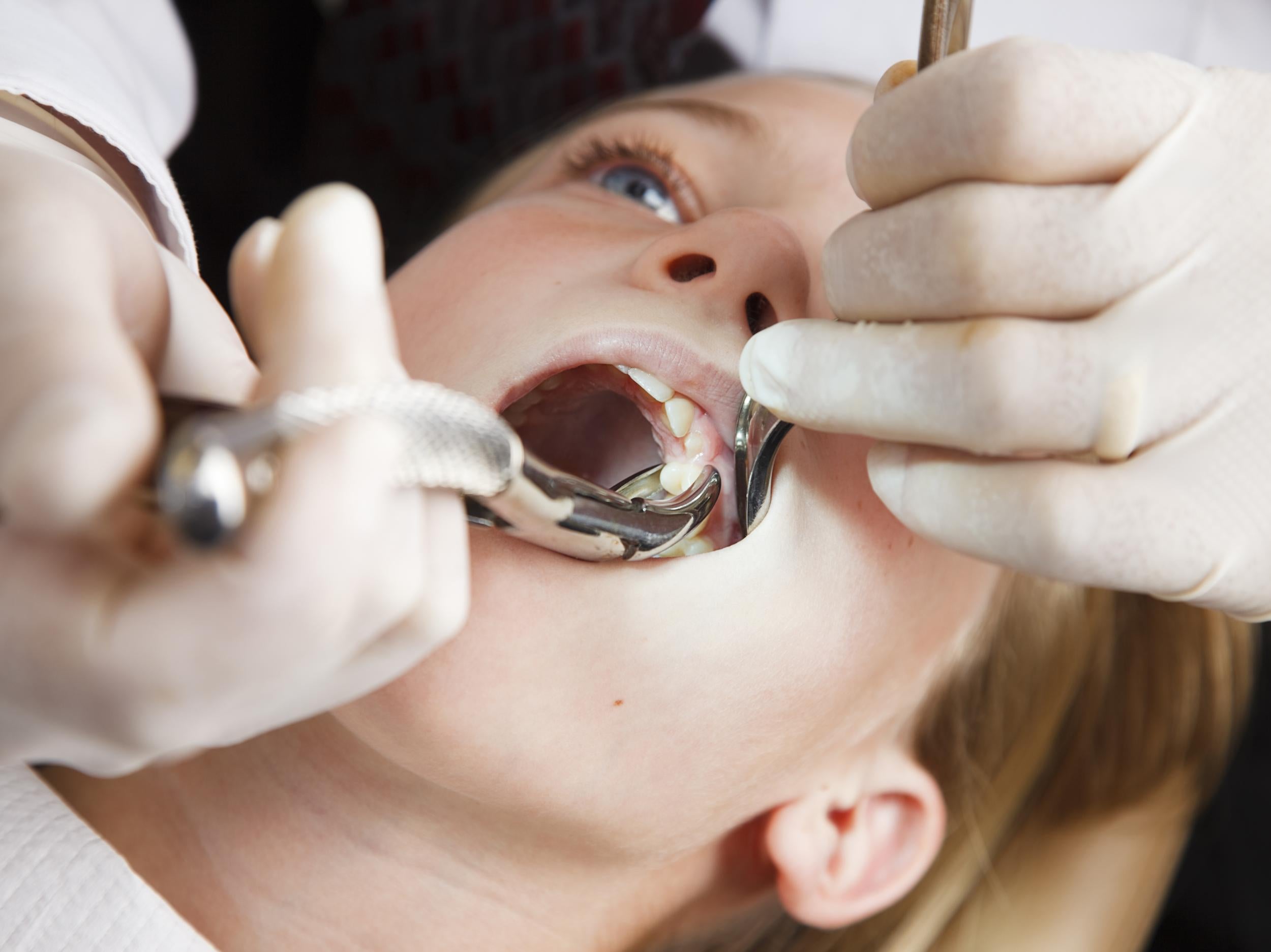Severe tooth decay in children could be symptom of wider neglect, experts warn
40 per cent of children who need surgery for dental problems already known to social services

Your support helps us to tell the story
From reproductive rights to climate change to Big Tech, The Independent is on the ground when the story is developing. Whether it's investigating the financials of Elon Musk's pro-Trump PAC or producing our latest documentary, 'The A Word', which shines a light on the American women fighting for reproductive rights, we know how important it is to parse out the facts from the messaging.
At such a critical moment in US history, we need reporters on the ground. Your donation allows us to keep sending journalists to speak to both sides of the story.
The Independent is trusted by Americans across the entire political spectrum. And unlike many other quality news outlets, we choose not to lock Americans out of our reporting and analysis with paywalls. We believe quality journalism should be available to everyone, paid for by those who can afford it.
Your support makes all the difference.Children found to have severe dental decay should be referred to NHS safeguarding teams because it may be an indicator of wider neglect at home, experts have warned.
Researchers at King’s College Hospital in London said untreated tooth pain should “ring alarm bells” for any clinician.
The team discovered that 40 per cent of children who needed dental or maxillofacial surgery due to dental decay were known to social services.
The findings have led to a new process at King’s College Hospital A&E unit for children admitted with dental infections, which sees them assessed for child neglect and referred to a safeguarding team if necessary.
The study authors said they want to see the changes rolled out across the NHS.
Researchers said GPs across the country are trained to identify general neglect and should be made aware that acute dental infection can also be a clear sign of neglect.
The King’s team looked at the patient data of children who attended the hospital with a dental or maxillofacial infection requiring surgery between January 2015 and January 2017.
“Over half of the children we cared for were aged between five and eight, and indicates this age group is at greatest risk of harm,” said study co-author, Kathy Fan, a consultant oral and maxillofacial surgeon at King’s.
“Sadly, by the time we treated the children they would already have suffered a sustained period of oral neglect, and probably been in pain.”
Consultant paediatric dentist and study co-author Marielle Kabban said: “Where patients or carers repeatedly fail to access dental treatment for a child’s tooth decay or leave dental pain untreated, alarm bells should ring for clinicians to consider neglect.
“Awareness and confidence to escalate concerns as well as educate non-dental healthcare workers is essential to recognise dental neglect early and arrange treatment.”
The pair also suggest that all children who are made subject to a child protection plan by social services should have a dental assessment carried out.
The number of hospital admissions for tooth decay among five to nine-year-olds rose to 26,000 last year, according to data from NHS Digital.
Tooth decay was the main reason for hospital admissions among five to nine-year-olds in England.
Additional reporting by Press Association
Join our commenting forum
Join thought-provoking conversations, follow other Independent readers and see their replies
0Comments